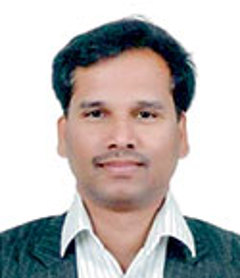Sakthivel, S.
Dr. S. Sakthivel has worked as a Senior Technologist (Process) at Tata Consulting Engineers Ltd. since 2009. He completed a BTech degree in chemical engineering, an MTech degree in Petroleum Refining and Petrochemicals (PRPC) from Anna University, and a PhD in chemical engineering from the Indian Institute of Technology Delhi (IIT-D). He has experience in process engineering, optimization and development; technology analysis, screening and selection; technoeconomic analysis; basic, applied and market research; design of laboratory and pilot experimental setup; process hazard analysis; planning and data management; and powder science and technology. He has published a number of research and technical papers in national and peer-reviewed international journals.
Separate fine solid particles from dusty air with a uniflow cyclone
Fine particles are usually collected by dry collectors, wet collectors, electrostatic precipitators and filters, at the commercial level.
Useful tips for a successful HAZOP study
The products we use on a daily basis comprise a variety of chemicals.
Small-scale coal-to-chemicals can revitalize India’s petrochemicals industry, economy—Part 2
In Part 1 of this article, published in April, the barriers of petrochemical production in India were discussed, along with the opportunity to explore chemicals from coal, using the specific example of polyvinyl chloride (PVC).
Small-scale coal-to-chemicals can revitalize India’s petrochemicals industry, economy—Part 1
Contemporary routes to the production of polymers usually involve setting up world-scale ethylene crackers with typical capacities of 0.7 MMtpy–1.5 MMtpy.
- 1
- ... 1 pages

- Meridian Energy Group’s Davis Refinery Project in North Dakota (U.S.) will be the world’s first net-zero carbon refinery 4/17
- Lummus expands R&D capabilities to enhance innovation and water and wastewater technologies 4/17
- Niger plans to build diesel refinery and increase supplies to Mali 4/17
- BASF, SABIC, and Linde celebrate the start-up of the world's first large-scale electrically heated steam cracking furnace 4/17
- U.S. crude stocks rise, gasoline, distillate inventories fall 4/17
- Russia's offline primary oil refining capacity revised up for April 4/17





